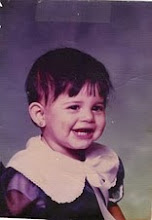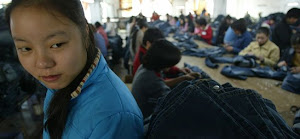Produced by Films for the Humanities and Sciences
Synopsis: In many Middle Eastern countries, honor is so highly prized that it is considered more valuable than life itself. This program examines the code of conduct that makes each woman a sacred vessel of her family’s honor—and the practice of atoning for any family member’s breach of that code with her blood. Scholars, judges, and clergymen discuss the culturally sanctioned practice of "honorable murder," while fathers, brothers, and mothers talk about the communal pressure to adhere to the honor code and how the loss of daughters and sisters has affected their lives. Interviews with some of the "lucky" ones—women who were imprisoned rather than executed—are also included.
-- http://www.films.com/id/10757/Honorable_Murder.html
Deeply disturbing, informative, and moving. This film does not hold back. The film is filled men who explain their stance on ‘honorable murders’ which for the sake of my own sanity I will only refer to as murder from now on. Let us start with the title “Honorable Murder” I understand the producers need to have a title that will draw an audience. This title definitely does that. The phrase can be problematic though, the men who carry out these murders have been given less jail time (if any) and have even been esteemed for their willingness to do whatever it took to clean their honor. We are introduced to men who are currently (1998) in jail in Jordan for carrying out these crimes. One of these quite calmly states that the sister he shot was his ‘favorite’ because she was most like him. The reason for her death was that she was raped. The mans interview is cross cut with an interview with his mother and father. The father admits that his son what had to be done. As he walked the street he was taunted by others about his sister, he could finally not take it and knew what had to be done. The interview with the mother is very emotional with her explaining that her daughter knew what was coming and accepted it even though her mother tried to shield her from it. The mother also raises her raises her voice in anger and points out to her husband that they are still taunted by others, even though her son killed her daughter. The father shrugs admits that that is true but that the taunting has lessened a bit. The audience is also introduced to a doctor and a judge. The doctor describes how he has often had families bring in their daughters to examine them after a rape. In a few weeks the girl is brought back this time taken to the morgue. The judge also expresses his opposition of the act however he stresses that a judge all he can do is carry out the sentence, it is the politicians who make the legislation and who are to blame for the ridiculously low sentence of 6 months maximum. The film also includes a scene of a wedding of a for affluent Jordanian family while the judge speaks about the governments inconsistencies in its representation of its stance on women’s rights and its actual legislation, which as mentioned earlier allows for these crimes to be committed with little to no consequence. Like in Changing Paths a religious leader is also interviewed to explain that while there is an incident of honor murder in the Qur’an that subsequent passages make it clear that this practice is not supported by Islam. The religious leader was visibly upset at the use of religion to excuse the murders.
The representation of women is diverse. We are introduced to victims of this crime through photos and interviews from friends and families. The audience also learns about the government’s practice of placing survivors of murder attempts in prison as a way to protect them from murder. One of these women tells her story of how her she was shot 12 times by her brother. While keeping this woman in jail is keeping her alive it is far from a logical and human solution to this problem. A truly heartbreaking scene follows this woman’s story which includes a voiced over narration of her father and sister vowing to kill her if she was ever released. Finally we are introduced to a woman who was forced into a marriage, and beaten by her husband. This story included interviews with this woman’s father who expresses his regret for his part in the situation. He admits that his daughter was extremely smart and destined for an academic life. While married (to her cousin) she was allowed to go to school however it was though she would fail, she did not. She flourished and went to university and was able to become a lawyer. She was granted a divorce and has sense reconnected with her family. She now works to educate young women about the oppression of these women. She discusses how forced marriages are just a part of it; these women are seen only as property, a commodity, stock if you will. If the stock decreases in value then you get rid of it. Forced marriages, domestic violence, and murders are the outcomes of these oppressive patriarchal beliefs.
From a transnational feminist perspective this film does an excellent job of representing the culture and theory surrounding these murders, it also includes religious fundamentalism, class and education level as possible reasons for the ability to continue this practice. However I wish the film would have delved deeper into the role of the cultural elite politicians in this practice.
Subscribe to:
Post Comments (Atom)







1 comment:
I really enjoyed reading these two posts.
It is interesting that both of these issues are represented as being "religious" but yet the Qur'an says nothing about it.
Part of cultural relativism is to respect other cultures practices as if cultures are static and unmoving. But we can see in these two examples how religion is used erroneously to justify the actions.
So many of the debates for and against FGM are centered around relativism, but yet even people within the culture can not remember why they do it... Interesting
Post a Comment